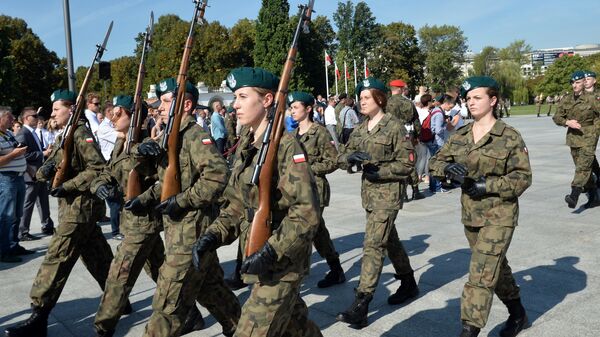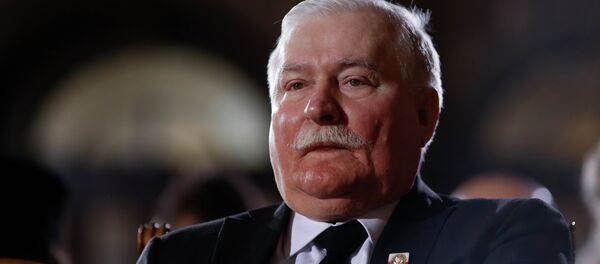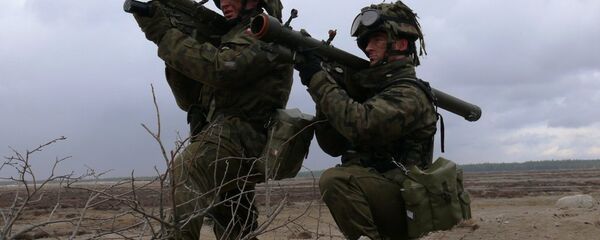Last week, Walesa, former president and ex-leader of the Solidarity social movement which toppled Poland's communist system in 1989, warned that the actions taken by the country's current government, elected last year, could lead to a civil war.
"If someone leads [the situation] to civil war, the other side will follow suit, and we will see. I have warned about the possible civil war from the very beginning, and if these people continue to behave themselves in such a reckless manner, then we will inevitably move in this direction," the politician said, speaking on Polish television.
Disagreeing with the president's choice of words, Walesa stormed out of the church in protest. In response, ceremony attendees began yelling at Walesa, and shouting "Death to the enemies of the people!" The same day, unknown attackers assaulted members of the Committee for the Defense of Democracy, a civic organization formed in November 2015 in opposition to the Law and Justice Party government, which Committee members said had initiated anti-democratic reforms in the country.
In turn, coming out in support of the Committee, Walesa made his dramatic statement about the possibility of "civil war," even admitting that it may be necessary to create self-defense groups to defend against attacks by pro-government mobs.
"This is a very serious matter, but apparently, I will have no other choice but to agree to a defensive organization, because the police does not protect those who are being attacked, who are being beaten up," the former president said.
Opponents among Poland's powerful pro-EU polity soon blamed the new government for adopting a series of laws they said had restricted freedom of the press and the independence of the judiciary, including the country's constitutional court. The government and its supporters responded that their actions were meant to return control of Polish institutions to Polish hands, and urged Brussels not to intervene in the country's domestic affairs.
Domestically, the new government's policies have led to protests, sometimes growing to several hundred thousand people at a time, which Walesa would personally help coordinate. In April, he declared that he was ready to bring people out to the barricades to fight against the current government.
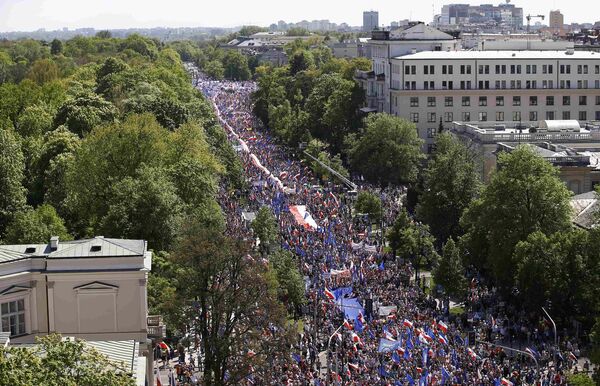
"When this demagogy and populism can no longer justify itself and people understand how they [the government] are harming Poland, it will be necessary to take a courageous decision, and, most likely, I'll take it, and we will finish the work of this government, which does so much to harm Poland," the ex-president said.
Walesa first denied the allegation, but eventually admitted that he had met several times with counterintelligence (and not the secret police) until 1976.
Monitoring the ongoing political drama unfolding in Poland, Kiril Ozimko, an independent journalist and contributor to the online news and analysis portal PolitRussia, warned that effectively, Poland's polity and civil society have been split into two camps: those supporting the government and those who are opposed.
"The opposition Committee for the Defense of Democracy is supported by pro-Brussels leftists and liberals, including the liberal Modern Party, the Polish Peasant Party, the Democratic Left Alliance and the Civic Platform. In turn, supporters of President Duda and Law and Justice leader Jaroslaw Kaczynski include nationalists, the right, conservatives, and Catholic movements (Piast, United Poland, the League to Protect Independence, and Poland Together)."
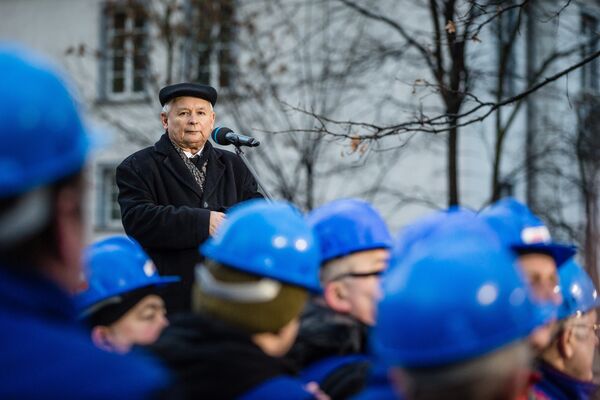
The political confrontation, Ozimko noted, "has created a visible rift in society." In the presidential runoff election in May 2015, Duda defeated his Civic Platform opponent, Bronislaw Komorowski by only 1.5%, (51.5-48.5%).
What's more, the journalist recalled, government supporters are concentrated in the country's east, with their opponents based largely in the north and west of the country, effectively creating "a split in between west and east, though not as serious as the one in Ukraine."

"Of course, the chances of the situation being brought to a civil war are unlikely," the journalist emphasized. "But still, as the example of Ukraine has taught us, anything is possible. In any event, the escalation that is taking place today is driving the country in that direction."
"Second, the positions of the government and the opposition are not radically different. Both are oriented to the West, and are equally unkindly disposed toward Moscow; both have been known to make revanchist statements and to wax nostalgic for 'Greater Poland', from the Baltic to the Black Seas, which could realistically be achieved only through the creation of a union with the Baltic states and Ukraine." Ultimately, "the basic conflict between politicians relates only to some internal matters, such as control of the media and the Constitutional Tribunal," the journalist explained.
Therefore, Ozimko noted, Walesa's "loud statements are unlikely to have a basis in reality. Most likely, this is another attempt at regaining attention, which the politician lost over the years."
"Nevertheless, even just political instability is still instability. And given Poland's proximity to the Collective Security Treaty Organization [which includes Russia, Belarus, and four other post-Soviet states], Moscow must pay closer attention to the events taking place in this country."
"Perhaps Walesa is one of the few figures inside Poland who would benefit from a possible political crisis. But to Poland's west such a crisis would be beneficial to many others; therefore, it's something that Moscow would do best to keep a close eye on," Ozimko concluded.

